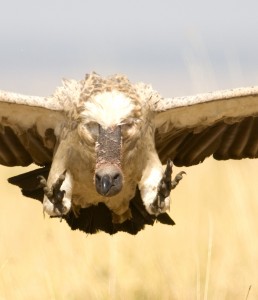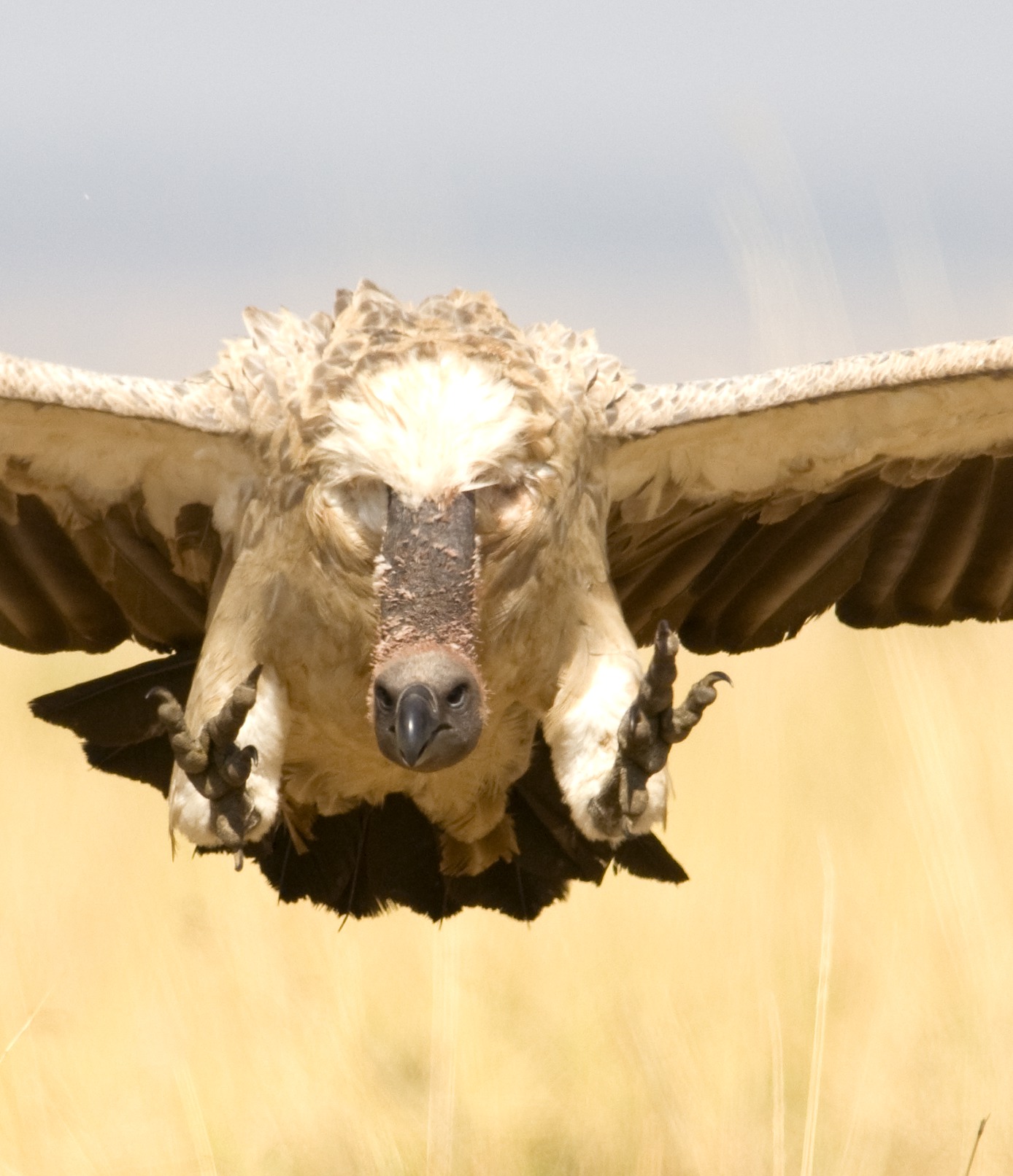 It’s coming up to winter so people will be conscious that our garden birds need a helping hand to get through the cold months. Bird feeders will be stocked, bread served up and water dished out. In the UK alone, almost half of households provide supplementary food for birds throughout the year. And although songbirds are usually the species that come to mind when we think of provisioning food the same principle can apply to more exotic birds, notably vultures. Indeed conservationists have supplied extra food to these scavengers for decades. Instead of bread or berries, a carcass is left out for the vultures to feed on. A recent paper of ours advocates this technique for a population of African White-backed Vultures in Swaziland.
It’s coming up to winter so people will be conscious that our garden birds need a helping hand to get through the cold months. Bird feeders will be stocked, bread served up and water dished out. In the UK alone, almost half of households provide supplementary food for birds throughout the year. And although songbirds are usually the species that come to mind when we think of provisioning food the same principle can apply to more exotic birds, notably vultures. Indeed conservationists have supplied extra food to these scavengers for decades. Instead of bread or berries, a carcass is left out for the vultures to feed on. A recent paper of ours advocates this technique for a population of African White-backed Vultures in Swaziland.
This country is home to the densest breeding population of this species so we should do our best to conserve them given the huge declines suffered by vultures throughout the Old World. In the paper we showed times when there isn’t enough food in Swaziland to feed the whole population which means the birds are forced to forage farther afield, most likely in South Africa. On the face of it this doesn’t seem problematic because South Africa has huge populations of herbivores which could supply carcasses to vultures. But the birds must fly over unprotected areas as well. This increases their chances that they’ll encounter a poisoned carcass, perhaps set out by a farmer to kill the terrestrial carnivores harassing his livestock.
It’s well known that vultures are particularly sensitive to poisons, especially NSAIDs. Their group foraging behaviour makes them even more susceptible too, the discovery of a carcass by one individual will bring in the rest of the soaring birds in visual range. The hope with creating vulture restaurants is the birds will focus on foraging for carrion in Swaziland, minimising the risk of poisoning.
Yet there are well known problems with supplying supplementary food for animals in general. They may act as an ecological trap for instance, drawing the birds into an area only for the fickle humans to stop the supply of food. Carrion is an unpredictable resource so vultures forage in a characteristic way to improve their chance of encountering it. If food is supplied in a predicable way there is a fear we may disrupt these behaviours. Another recently realised danger in providing supplementary food is that it can attract unwanted guests. Sites tailor made for vultures in South Africa were shown to draw in jackals and hyenas.
Given these issues practitioners need to think carefully about how they provide food. Perhaps the best approach is a series of sites supplying food at random which would best represent the distribution of naturally occurring carrion.
Author: Adam Kane, @P1zPalu, kanead[at]tcd.ie

